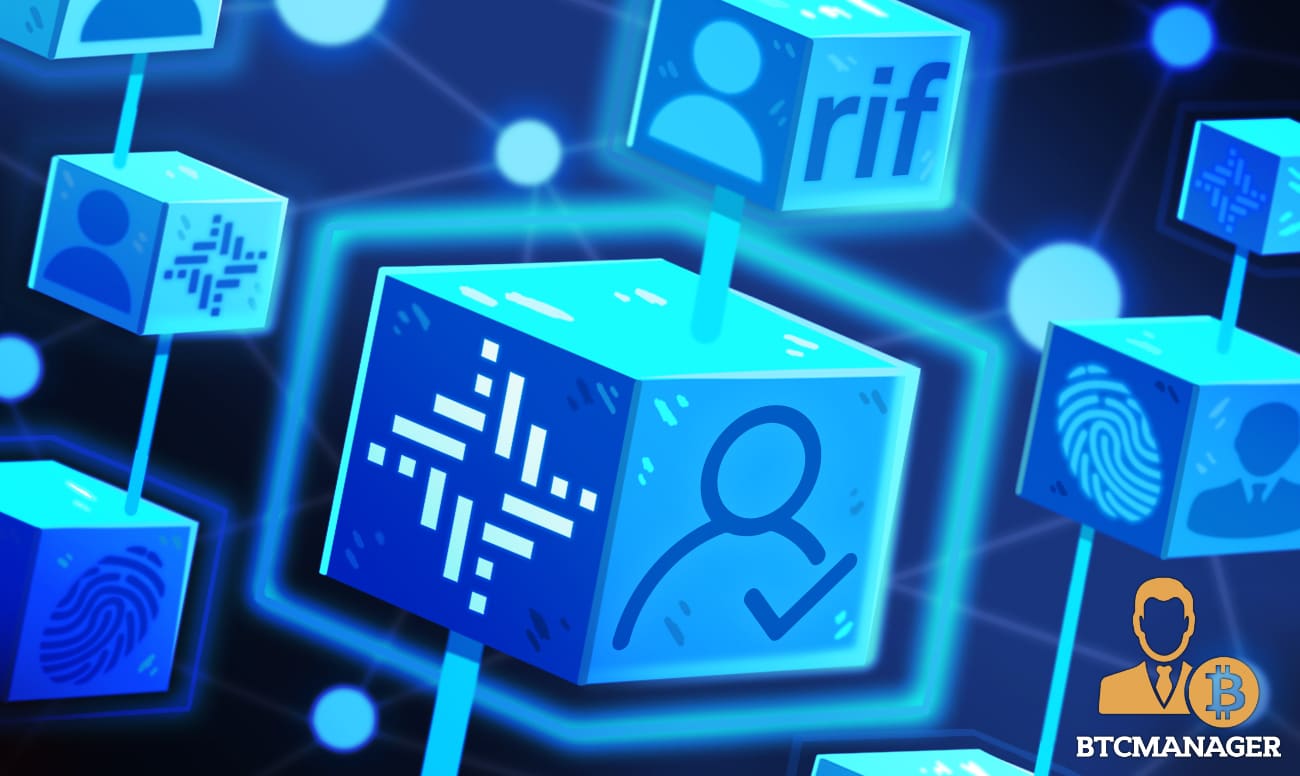RIF Directory Is Laying the Building Blocks for Blockchain-Powered SSIDs

In a world that is getting increasingly digital, the importance of self-sovereign identities cannot be understated. Present solutions pertaining to online identities suffer from several issues including excessive centralization and a lack of concern for user-privacy, among others. However, by leveraging the decentralized characteristics of blockchain technology, the RIF ecosystem’s RIF Directory is working toward tackling these bottlenecks plaguing the online identity space.
Primer on Self-Sovereign Identities
Before deep-diving into the RIF approach toward SSIDs, let us quickly sift through the current landscape of the online ID ecosystem.
Today, our online identities are virtually owned by third parties.
Self Sovereign Identities (SSIDs) solve this issue by giving the complete ownership of online identities back to the users who use it. SSIs aims to decentralize the silos of data held by conglomerates to make it more user-centric where they have complete ownership and act as the final decision-making authority to move their personal information from one place to another. SSIs can help tremendously in mitigating instances of a personal data breach by nefarious elements on the Internet and serve as a key data-preserving solution for tomorrow’s digitized world.
The Role of Blockchain Technology
To date, several projects have tried to develop decentralized identity layers that give identity ownership back to users without them having to compromise on their privacy. Unfortunately, however, they’ve always had to rely on centralized authorities for permission. This is where blockchain comes in.
Although blockchain constitutes only 5-10% of the design of SSIs, its role in changing the look of SSIs is paramount as it eliminates the dependency on centralized authorities. Distributed ledger technology (DLT) helps develop a permissionless system that fosters trust in SSIs without authority. Blockchain functions as the link that has for long been missing in giving identity solutions a user-centric edge.
RIF Directory: The RIF Approach to SSIs
The RIF Ecosystem – built on top of the RSK smart contract platform – offers an ideal identity and reputation layer in the form of RIF Directory.
RIF Directory provides both users and nodes with unified APIs and libraries to interact with major SSIDs protocols. It is essentially designed to enable users to take complete control over their IDs and help them interact with different elements in a self-sustaining decentralized economy. The protocol enables financial inclusivity by enabling users that have found themselves excluded from the traditional financial system.
At its core, RIF Directory aims to safeguard users’ personal data and at the same time empower them enough so they can manage who accesses their data and who doesn’t. By giving them control over their online reputation, RIF Directory will enable users to freely interact with numerous marketplaces and platforms in the decentralized digital economy of the future. They’ll be able to do this without losing their track record, contacts, and social value.
Giving Users Complete Data Ownership via RIF Name Service
The RIF Name Service (RNS) is a decentralized service that enables users to have a readable domain in any blockchain. Think of it as a service that changes the seemingly complex and hard-to-remember blockchain address into human-friendly easy-to-remember addresses. RNS can also be used to identify other personal identities, including payment ID, storage, and communication addresses.
Ease-of-use is at the core of RNS’s mission to reach the unbanked in the remotest corners of the world. Blockchain addresses – for instance, a Bitcoin (BTC) wallet address – are notorious for being unnecessarily lengthy and complex which has stunted their adoption en masse. The adoption of any product or service is heavily dependent on its ease-of-use and accessibility, a fact RNS is cognizant of.
Through RNS, users can transfer digital assets via human-readable addresses. Easy to remember RNS addresses minimize the risk associated with funds that can be lost by mistyping complex wallet addresses. RNS also helps users show verifiable claims about themselves without compromising their privacy. In the 21st century, data has become the new oil, and as a consequence, user-privacy often goes for a toss by companies that have a large repository of sensitive user information. RNS solves this menace by ensuring the user’s privacy is preserved.
Focus on Blockchain Ecosystem Inclusivity
In most ways, RNS is similar to the Ethereum Naming Service (ENS) with minor technical differences. Both the services are tackling the same problem and have, until now, been relatively successful at it.
Just as ENS is currently focused on the Ethereum blockchain, RNS is currently compatible with the RSK blockchain. However, RNS is working toward expanding its services across various other blockchains as it doesn’t want to limit itself with one blockchain network.
It’s also worthy to note that RNS is working toward increasing blockchain interoperability. Although the concept of moving a user’s SSID from one platform to another is also being explored by uPort and Cablenet, they are at the moment only focused on deploying such solutions within the Ethereum ecosystem. Conversely, RNS aims to be more inclusive in this regard by enabling the movement of users’ SSIDs across any blockchain.
How Does RNS Sit with the Rest of the RIF Ecosystem?
Powered by the RSK blockchain, RNS domains inherit Bitcoin’s decentralized nature and security. Economically, RNS domains are unexpensive. What’s more, once an RSK Partner acquires a domain, they can delegate the subdomains at no additional cost.
The marketplace being developed by the RIF ecosystem sits in the middle of all its tools and services. In the long-term, RIF aims to develop a marketplace that is transparent, rapid, and is devoid of all the inefficiencies found in the relatively older online marketplaces.
The RIF marketplace – in a manner similar to Amazon and eBay – will comprise of the option for users to leave reviews for vendors that are reflective of their quality of service.
For instance, if you purchase online storage service from a vendor in the marketplace and it doesn’t meet your expectations, you can drop a negative review with a 1-star rating. Next, when a new user accesses the marketplace, they can gauge the legitimacy and service of the vendor based on user reviews and choose whether to deal with the seller or not.
A live example of this could be found in the form of project DIDI. The project, powered by the RSK blockchain, is working on developing an SSID product for people from slums in Argentina who don’t have access to any bank account or formal documents.
Through DIDI, these people can build their reputation using verifiable credentials and SSIs. This project is particularly significant as it shows how robust and cutting-edge technology solutions can include people within the formal economy and allow them to have access to better goods and services through their credentials.
In this way, the RIF Directory provides a reputation layer to the market participants to foster a community that values better products and services and the principles of privacy.
Closing Remarks
The RIF Directory is a much-required addition to not only the RIF Ecosystem but also to the larger blockchain space as it stays loyal to the democratic ethos of DLT.
With the ever-increasing consolidation of user data in the hands of the few, it is the need of the hour to have a decentralized alternative in the market that not only gives the power to manage their identity back to the users but also respects their privacy. The RIF Ecosystem understands that privacy is a right and not a luxury, and, as such, every individual – banked or unbanked – deserves to have an equal say at preserving it for themselves. RSK has largely contributed in the process of financial inclusion through blockchain technology and blockchain for social impact. RIF adds the missing piece of the puzzle by enabling SSIDs.












